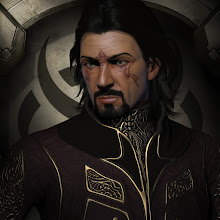The next few pages after the last entry are a complete mess; mostly a mass of scribblings, smudges, cross-outs and arrows attached to more scribblings. As the pages progress something tangible seems to emerge from them. Stanzas form, and the cross-outs and arrows come less frequently. At last, on the fourth page, the complete poem stands, neatly and carefully scribed as though it were a piece of sacred text.
i
See with what simplicity
This nymph begins her golden days!
In the black sky she loves to lie,
And there with her fair aspect tames
The wilder stars, and gives them names:
But only with the brightest plays;
And them does tell
What color best becomes them and what height.
ii
Who can foretell for what high cause
This darling of my God was born!
Yet this is she whose chaster laws
The wanton Love shall one day fear,
And, under her command severe,
See his bow broke and ensigns torn.
Happy, who can
Appease this virtuous enemy of man!
iii
O then let me in time compound,
And parlay with those conquering eyes;
Ere never have tried their force to wound,
Ere with their quiet love they thrive
In triumph over evils' strive,
And them that yield but more despise.
Let me be laid,
Where I may see thy glories from some shade.
iv
Meantime, whilst all heavenly things
Themselves do at thy beauty charm,
Reform the errors of the slave;
Make that the children may have share
Of sweetness, seeing they are fair;
And wars of their hatred disarm:
But most procure
That holy Peace may a longer age endure.
v
But O young beauty of the stars,
Whom Nature courts with wisps and light,
Gather the faithful, but spare the young;
Lest love's folly become a crime,
And the Lord's work is crushed in time,
But merciful eyes shan't conquer kindness;
And, ere we see,
Lost children walk not alone, but with Thee.
((This poem was adapted from 'The Picture of Little T. C. in a Prospect of Flowers' by Andrew Marvell. The original work can be found here.))

No comments:
Post a Comment